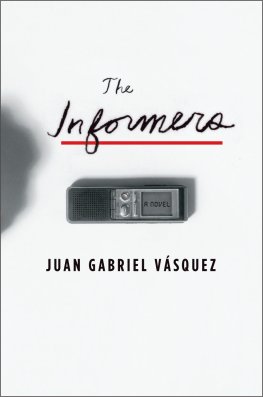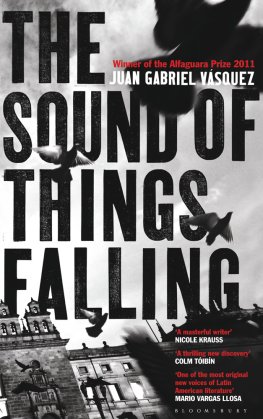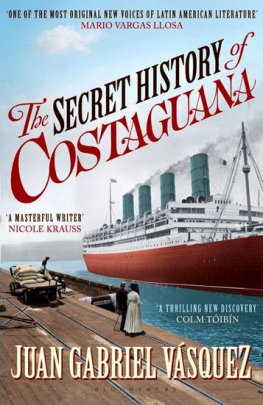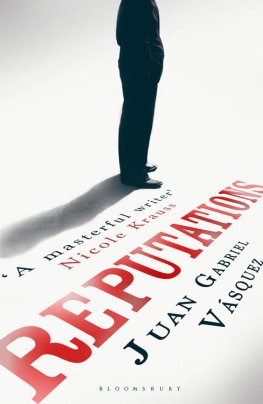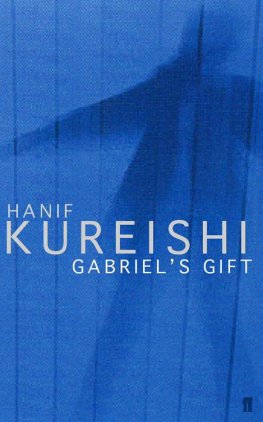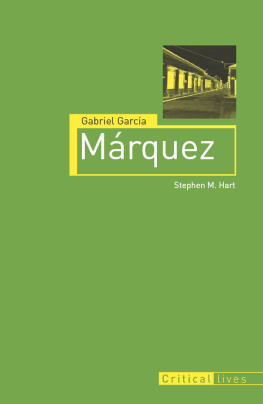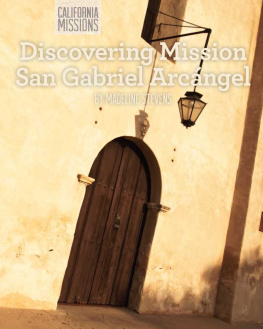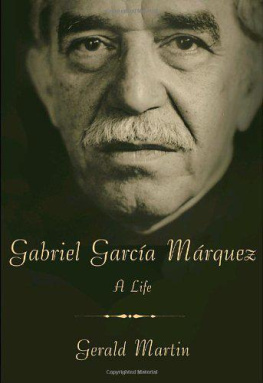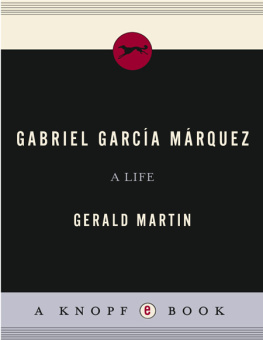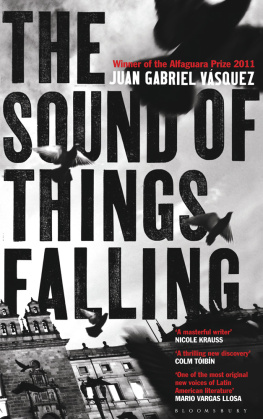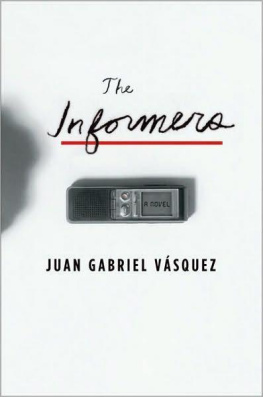Juan Gabriel Vasquez
The Informers
FOR FRANCIS LAURENTY (19242003)
You will never wash out that stain; you cannot talk long enough for that.
DEMOSTHENES, "On the Crown"
Who wishes to speak?
Who wishes to rake up old grievances?
Who wishes to be answerable to the future?
DEMOSTHENES, "On the Crown"
On the morning of April 7, 1991, when my father telephoned to invite me to his apartment in Chapinero for the first time, there was such a downpour in Bogota that the streams of the Eastern Hills burst their banks, and the water came pouring down, dragging branches and mud, blocking the sewers, flooding the narrowest streets, lifting small cars with the force of the current, and even killing an unwary taxi driver who somehow ended up trapped under the chassis of his own vehicle. The phone call itself was at the very least surprising, but on that day seemed nothing less than ominous, not only because my father had stopped receiving visitors a long time before, but also because the image of the water-besieged city, the motionless traffic jams and broken stoplights and marooned ambulances and unattended emergencies, would have sufficed under normal circumstances to convince anyone that going out to visit someone was imprudent, and asking someone to come to visit almost rash. The scenes of Bogota in chaos attested to the urgency of his call and made me suspect that the invitation was not a matter of courtesy, suggesting a provisional conclusion: we were going to talk about books. Not just any old book, of course; we'd talk about the only one I'd then published, a piece of reportage with a TV-documentary title-A Life in Exile, it was called-that told or tried to tell the life story of Sara Guterman, daughter of a Jewish family and lifelong friend of ours, beginning with her arrival in Colombia in the 1930s. When it appeared in 1988, the book had enjoyed a certain notoriety, not because of its subject or its debatable quality, but because my father, a professor of rhetoric who never deigned to sully his hand with any form of journalism, a reader of classics who disapproved of the very act of commenting on literature in print, had published a savage review of it in the Sunday magazine of El Espectador. It's perhaps understandable that later, when my father sold the family home at a loss and took a lease on a refuge for the inveterate bachelor he pretended to be, I wasn't surprised to hear the news from someone else, even if it was from Sara Guterman, my least distant someone else.
So the most natural thing in the world, the afternoon I went to see him, was to think it was the book he wanted to discuss with me: that he was going to make amends, three years late, for that betrayal, small and domestic though it may have been, but no less painful for that. What happened was very different. From his domineering, ocher-colored armchair, while he changed channels with the solitary digit of his mutilated hand, this aged and frightened man, smelling of dirty sheets, whose breathing whistled like a paper kite, told me, in the same tone he'd used all through his life to recount an anecdote about Demosthenes or Gaitan, that he'd spent the last three weeks making regular visits to a doctor at the San Pedro Claver Clinic, and that an examination of his sixty-seven-year-old body had revealed, in chronological order, a mild case of diabetes, a blocked coronary artery-the anterior descending-and the need for immediate surgery. Now he knew how close he'd been to no longer existing, and he wanted me to know, too. "I'm all you've got," he said. "I'm all you've got left. Your mother's been buried for fifteen years. I could have not called you, but I did. You know why? Because after me you're on your own. Because if you were a trapeze artist, I'd be your only safety net." Well then, now that sufficient time has passed since my father's death and I've finally decided to organize my head and desk, my documents and notes, to get this all down in writing, it seems obvious that I should begin this way: remembering the day he called me, in the middle of the most intense winter of my adult life, not to mend the rift between us, but in order to feel less alone when they opened his chest with an electric saw and sewed a vein extracted from his right leg into his ailing heart.
It had begun with a routine check-up. The doctor, a man with a soprano's voice and a jockey's body, had told my father that a mild form of diabetes was not entirely unusual or even terribly worrying at his age: it was merely a predictable imbalance and wasn't going to require insulin injections or drugs of any kind, but he would need to exercise regularly and observe a strict diet. Then, after a few days of sensible jogging, the pain began, a delicate pressure on his stomach, rather resembling a threat of indigestion or something strange my father might have swallowed. The doctor ordered new tests, still general ones but more exhaustive, and among them was a test of strength; my father, wearing underpants as long and baggy as chaps, first walked then jogged on the treadmill, and then returned to the tiny changing room (in which, he told me, he'd felt like stretching his arms, and, realizing the place was so small he could touch the facing walls with his elbows, suffered a brief attack of claustrophobia), and when he'd just put on his flannel trousers and begun to button up the cuffs of his shirt, already thinking about leaving and waiting for a secretary to call him to pick up the results of his electrocardiogram, the doctor knocked on the door. He was very sorry, he said, but he hadn't liked what he'd seen in the initial results: they were going to have to do a cardiac catheterization immediately to confirm the risks. And they did, of course, and the risks (of course) were confirmed: there was an obstructed artery.
"Ninety-nine percent," said my father. "I would have had a heart attack the day after tomorrow."
"Why didn't they admit you there and then?"
"Because the fellow thought I looked really nervous, I suppose. He thought it'd be better if I went home. He did give me a very specific set of instructions, though. Told me not to move all weekend. Avoid any kind of excitement. No sex at all, especially. That's what he said to me, believe it or not."
"And what did you say to him?"
"That he didn't need to worry about that. I wasn't about to tell him my life story."
As he left the office and hailed a taxi amid the confusion of Twenty-sixth Street, my father had barely begun to confront the idea that he was ill. He was going to be admitted to the hospital without a single symptom that would betray the urgency of his condition, with no discomfort beyond the frivolous pain in the pit of his stomach, and all because of an incriminating catheter. The doctor's arrogant spiel kept running through his head: "If you'd waited three more days before coming to see me, we'd probably be burying you in a week." It was a Friday; the operation was scheduled for the following Thursday at six in the morning. "I spent the night thinking I was going to die," he told me, "and then I phoned you. That surprised me, of course, but now I'm even more surprised you've come." It's possible he was exaggerating: my father knew no one was apt to consider his death as seriously as his own son, and we devoted that Sunday afternoon to such considerations. I made a couple of salads, made sure there was juice and water in the fridge, and began to look over his latest income-tax return with him. He had more money than he needed, which isn't to say he had a lot, just that he didn't need much. His only income came from his pension from the Supreme Court, and his capital-that is, the money he'd received when he'd sold off the house where I'd grown up and my mother had died-had been invested in savings bonds, and the interest from them was enough to cover his rent and living expenses for the most ascetic lifestyle I'd ever seen: a lifestyle in which, as far as I could tell, no restaurants, concerts, or any other means, more or less onerous, of entertainment entered into the picture. I'm not saying that if my father had spent the occasional night with a hired lover I would have found out about it; but when one of his colleagues tried to get him out of the house, to take him out for a meal with some woman, my father refused once and then left the phone off the hook for the rest of the day. "I've already met the people I had to meet in this life," he told me. "I don't need anyone new." One of those times, the person who invited him was a trademark and patents lawyer young enough to be his daughter, one of those large-breasted girls who don't read and seem to go through an inevitable phase of curiosity about sex with older men. "And you turned her down?" I asked. "Of course I turned her down. I told her I had a political meeting. 'What party?' she asked. 'The Onan ist Party,' I told her. And off she went quietly home and never bothered me again. I don't know if she found a dictionary in time, but she seems to have decided to leave me alone because she hasn't invited me to anything since. Or who knows, maybe there's a lawsuit against me, no? I can almost see the headlines: PERVERTED PROFESSOR ASSAULTS YOUNG WOMAN WITH BIBLICAL POLYSYLLABLES."

